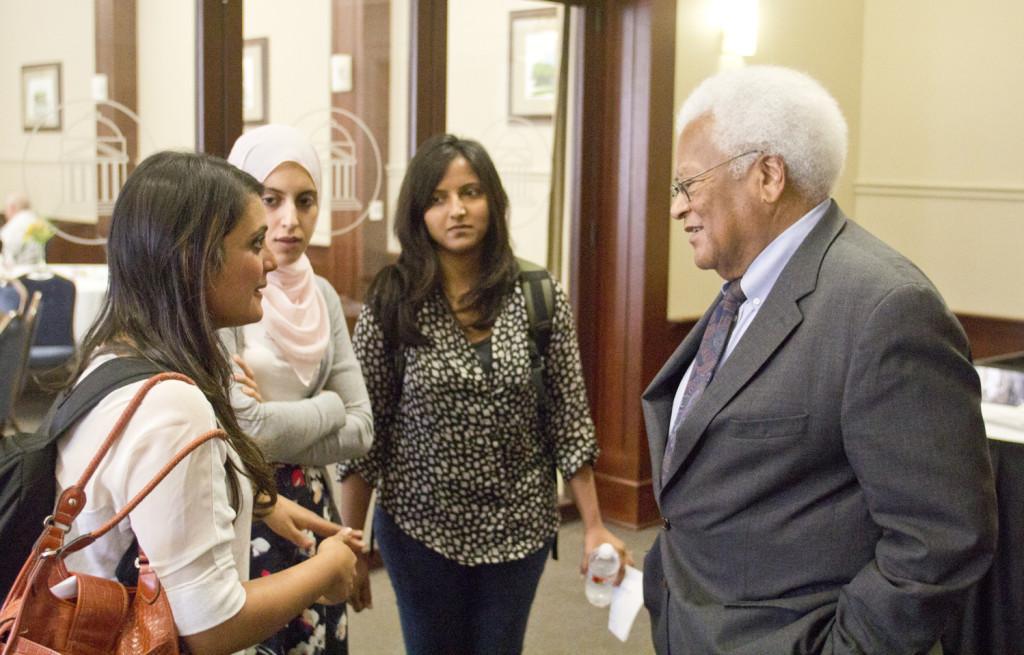
August marked the 50th anniversary of the March on Washington at which Martin Luther King Jr. delivered his famous “I Have a Dream” speech, an iconic event of the Civil Rights Movement in the 20th century.
Many scholars and leaders of that movement stress that the struggle for civil rights did not end with King’s speech, with the passage of the Civil Rights Act or even the election of President Barack Obama. Civil rights, they argue, are still being fought
for today.
On Friday, Dedman Law School and the Perkins School of Theology partnered up to present a symposium entitled “The End of Civil Rights in America?” The purpose of the symposium was to examine economic justice through the lens of both law and religion.
Many civil rights leaders, notably King, often channeled the teachings of religion as a foundation for their push for legal and social equality for minorities. But many forget that King and others also wanted economic justice and fairness for minorities, for whom poverty had become a de facto form of slavery in society.
Eliot Shavin, a Dedman law professor, acknowledged that the title of the seminar may be shocking. He then went on to discuss Franklin Roosevelt’s “Second Bill of Rights,” which stated that all workers have the right to earn enough money to support themselves and their families.
After President Roosevelt’s death, Shavin said, his wife Eleanor helped draft the United Nations Universal Declaration of Human Rights, in which Article 23 states that all people have rights to protection against unemployment, equal pay for equal work, and joining and forming unions.
Throughout the 20th century and into the 21st, these rights have been criticized and legally abridged. For this reason, the message of King’s work in the 1950s and ‘60s still resonates today, Shavin said.
Shavin finished his presentation by saying that elections matter, that to achieve the goals of the Roosevelts’ rhetoric, “it required courageous people to take to the lunch counters, to take to the streets of Washington.”
After lunch was served, the event’s keynote speaker, Reverend Jim Lawson, was introduced.
Lawson, a Methodist pastor, was a close friend of King, and is a civil rights activist in his own right as an early practitioner of nonviolent resistance, which he learned while doing missionary work in India in the early 1950s.
Lawson considers himself “not a civil rights leader, but a retired pastor,” and cites this as the reason for his activism, saying that “a pastor cannot divorce himself from his people’s plight.”
He said the notion that the United States is comprised of a people of law is a myth, that “we must now establish the Constitution as the value system of the nation, politically.”
Turning the lectern into a pulpit, Lawson said that “we now need a new legal strategy, because resistance against the struggle for civil rights has organized in a fashion never before seen. Whether they call themselves Republicans, members of the Tea Party or hedge fund investors, […] they are the forces of spiritual wickedness.”
Lawson then described the significance of the events of the Civil Rights Movement, such as the boycott of the Montgomery Bus Co., the Freedom Riders and the March on Washington, as examples of the power of nonviolent resistance, which, Lawson said, is a major tactic of the “strategized campaign for change.”
“If we can ignite 21st-century struggles with nonviolence, we can show that the status-quo of today will not last,” Lawson said.








